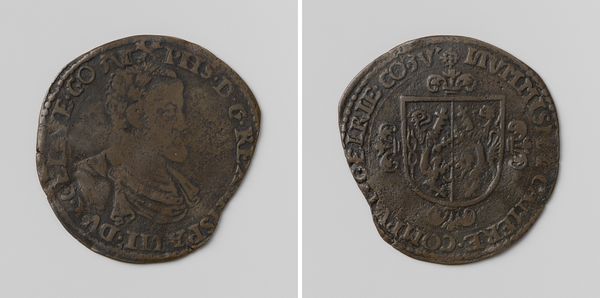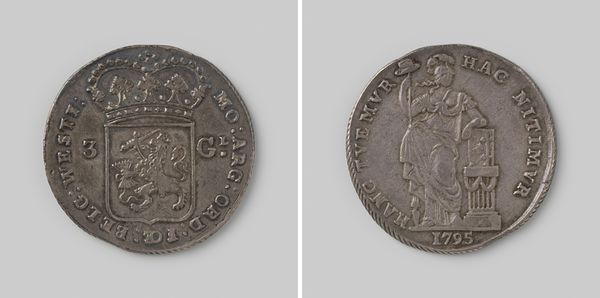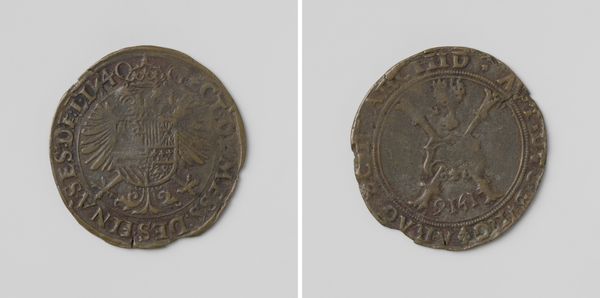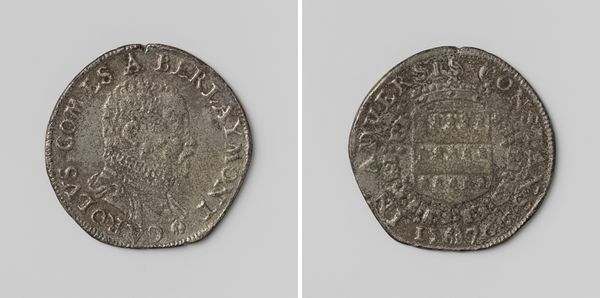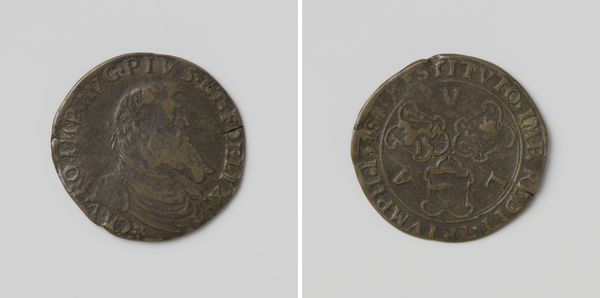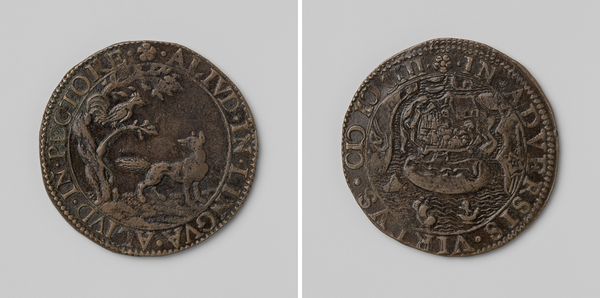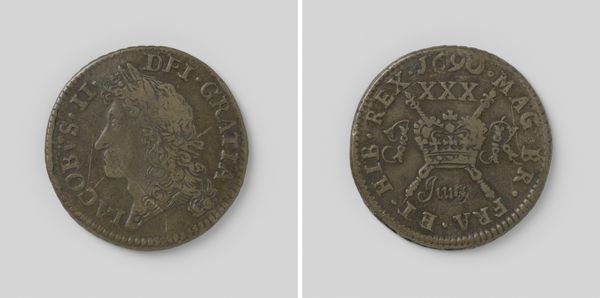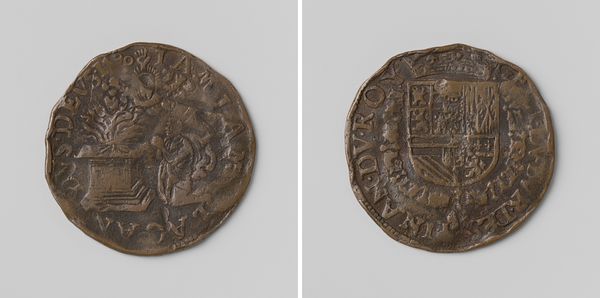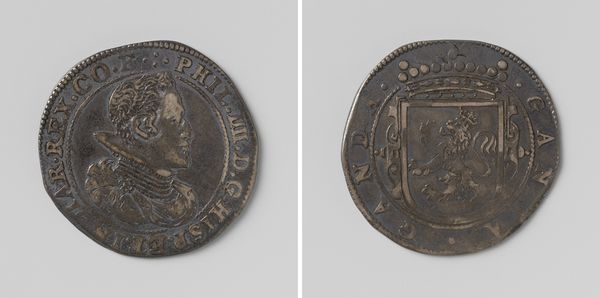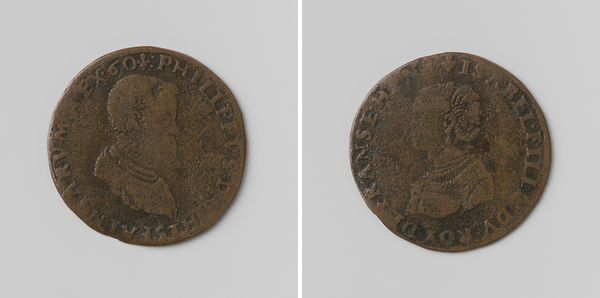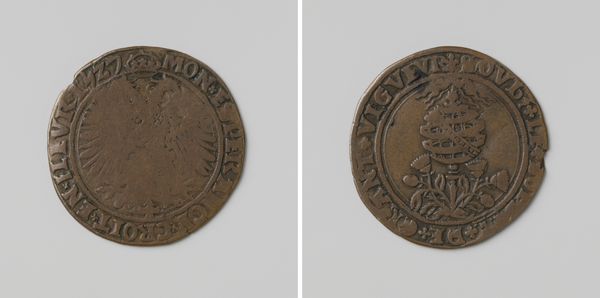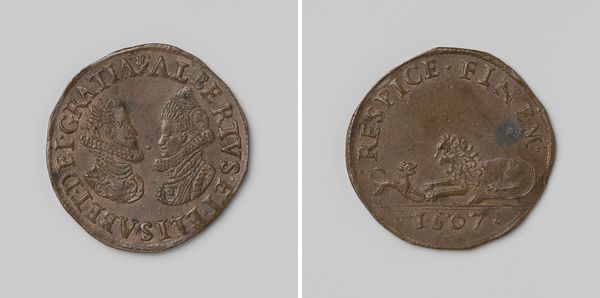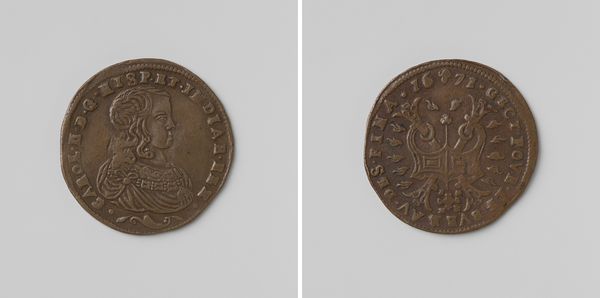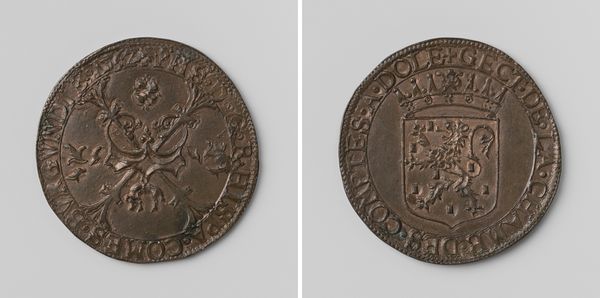
Filips II, koning van Spanje, rekenpenning van de rekenkamer van Brabant 1597
0:00
0:00
anonymous
Rijksmuseum
carving, metal, sculpture
#
portrait
#
carving
#
metal
#
sculpture
#
11_renaissance
#
sculpture
#
carved
Dimensions: diameter 2.8 cm, weight 4.41 gr
Copyright: Rijks Museum: Open Domain
Editor: Here we have a 1597 metal carving; a rekenpenning, or counting token, of Philip II, King of Spain, crafted for the Chamber of Accounts of Brabant. The small scale feels surprisingly grand, somehow. What draws your eye? Curator: It's remarkable how such a tiny object speaks volumes. Look at the imagery—the portrait of Philip, and the heraldic lion rampant. What do they evoke for you? Editor: Power, definitely. But also maybe… distance? Philip was often far from Brabant. Does the imagery reinforce that? Curator: Precisely. Think about what symbols were selected and emphasized. Why Philip's profile and not, say, an allegory of Justice? It's about projecting authority, a constant reminder of Spanish rule, despite physical absence. The lion, of course, embodies the might of Brabant itself, yet here, it's framed within the Spanish context. This tension would have been deeply felt. Editor: So the symbolism acts as a kind of… propaganda, almost? Subtly asserting control? Curator: Indeed! Currency and tokens weren't just for trade or calculation. They were visual tools, miniature billboards, imprinting a cultural and political reality onto the populace's daily lives. How fascinating to consider the messages silently exchanged hand to hand. Editor: It’s really eye-opening to consider the coin as more than just money, and instead, seeing its layered, complex messaging. I'll definitely see coins in a different way now. Curator: Exactly. And that is how symbols and memory work – subtly, relentlessly shaping our understanding.
Comments
No comments
Be the first to comment and join the conversation on the ultimate creative platform.
